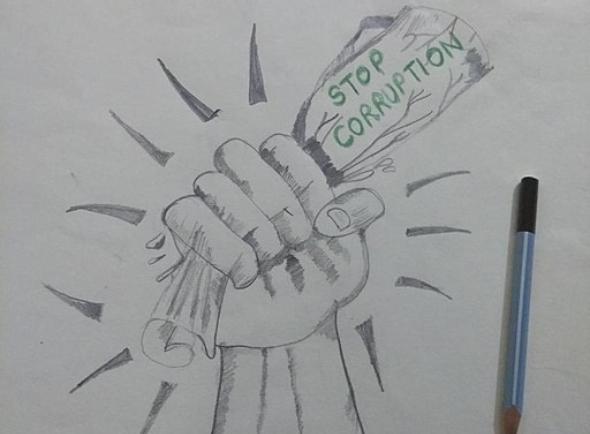
Submitted by D. Mason on Thu, 24/11/2022 - 11:41
by: Xavier Romero Vidal and Cristian Márquez Romo
Why politicians downplay corruption while in power
Corruption is a major challenge for democratic governance. Our recent study suggests that politicians’ perceptions are conditioned by their political allegiances but also by the economic context, suggesting that economic crises open windows of opportunity for anti-corruption reforms.
Peru is facing a political crisis: President Pedro Castillo is facing a legal battle after the country’s attorney general filed a constitutional complaint against him. At least four former Peruvian presidents have been formally accused of corruption (one of them committed suicide before being arrested), and now for the first time a sitting president is facing such process for corruption. Although the Prosecutors Office ordered a search of the offices and homes of six members of Congress also allegedly involved in the case, the legislative branch will decide how to process the constitutional complaint against him. The future of Castillo depends now of Peru’s Congress. How seriously will members of parliament take the allegations?
In a recent paper published in Legislative Studies Quarterly we studied this question: what are the individual and contextual-level factors that shape legislators’ and other policymakers’ perceptions of corruption?
Since the transitions to democracy in the late 1970s, virtually every Latin-American country has witnessed corruption scandals involving former presidents or other top government officials, spreading the generalised public perception that most or all politicians are involved in corruption. Particularly for young democracies, corruption has been a critical political and economic issue. Citizens rightly expect policymakers to take corruption seriously and thus to set the appropriate rules to fight it; yet given that this often means policing themselves, politicians tend to have weak incentives to pursue such anti-corruption reforms unless voters vocally demand them.
Moreover, citizens do not always punish electorally corrupt politicians, and often are even willing to support them. Corruption can be considered less problematic when it affects the party we support than when it involves other parties. One of the reasons why this happens is our natural tendency to seek information that supports our predispositions, discarding bits of information that go against our previous beliefs. “Don’t confuse me with facts”, says the popular quote. This is known as motivated reasoning: a type of bias that affects us all, including politicians and policymakers. In fact, policymakers’ deeper involvement with government and political parties make them even more reliant on motivated reasoning more than the general public.
Can motivated reasoning dampen politicians’ assessment of corruption?
In our recent article, we analyse the influence of motivated reasoning on politicians’ perceptions of corruption, relying on a comparative survey of over 3,000 politicians from 18 Latin American countries between 2009 and 2019. The survey asked them about the seriousness of corruption in their country, as well as questions about their ideology, political career and personal characteristics. Our analysis led to a concerning (although expected) pattern: legislators systematically perceive lower corruption levels while in power. Regardless of their ideology, legislators are likely to engage in governing-motivated reasoning and minimizing concerns for corruption when they belong to governing party or coalition, while perceiving higher corruption levels as members of the opposition.
So should we ever expect policymakers to tackle corruption while in government, when they have both the legislative power to fight against it but the incentives to downplay their salience and relevance? There is a silver lining in our study. Even when politicians’ perceptions of corruption are mainly explained by their role as government or opposition members, the economy can play a crucial role. Members of the parties supporting the government tend to perceive corruption differently depending on the economic context. That is, during periods of strong economic performance, governing legislators tend to downplay corruption, widening the government-opposition perception gap. In contrast, dire economic conditions tend to result in a more widespread awareness of corruption among members of government, narrowing the perception gap with opposition members. In other words, during economic crises both opposition and government tend to perceive corruption as a more relevant issue, suggesting that economic crises can open windows of opportunity for anticorruption reforms. We argue that this happens mainly due to electoral pressures: voters tend to be both more aware of corruption during economic crises and more likely to take it into account when casting their vote.
Policy implications
Some of the most important anti-corruption efforts in Latin America during the last decades have indeed resulted from economic shocks that forced political elites to introduce reforms. In Mexico, until the 1990s, when the PRI (Institutional Revolutionary Party) still had a strong political control and partisan majority in Congress, the political elite had avoided introducing anticorruption reforms. The pressure from the economic crisis in 1981 and 1994 contributed to the approval of new anticorruption measures during the following years. In Brazil, after a long period of economic stability, thousands of citizens took the streets to demand accountability amidst a context of economic hardship, forcing Dilma Rouseff’s government (2011-2016) to introduce several anti-corruption reforms in response to the Operation ‘Car Wash’ (Lava Jato). In a context of rising social unrest mainly due to the exhaustion of the economic model in Argentina, former president Fernando de la Rúa (199-2001) launched a political platform that gained support by denouncing corruption, making the creation of the Anti-Corruption Bureau in 1999 one of the first measures of his government.
The outcome of the current political crisis involving Peru’s President Castillo will therefore be conditioned by the country’s economic situation. While a majority of Peruvians thinks that the Executive is involved in corruption, the country’s economic outlook has worsened. This may increase perceptions of corruption as a serious issue among politicians who support the government, as our research suggests. The context of increasing economic instability might turn to be a key factor in Castillo’s struggle to maintain political support and hold onto power.
